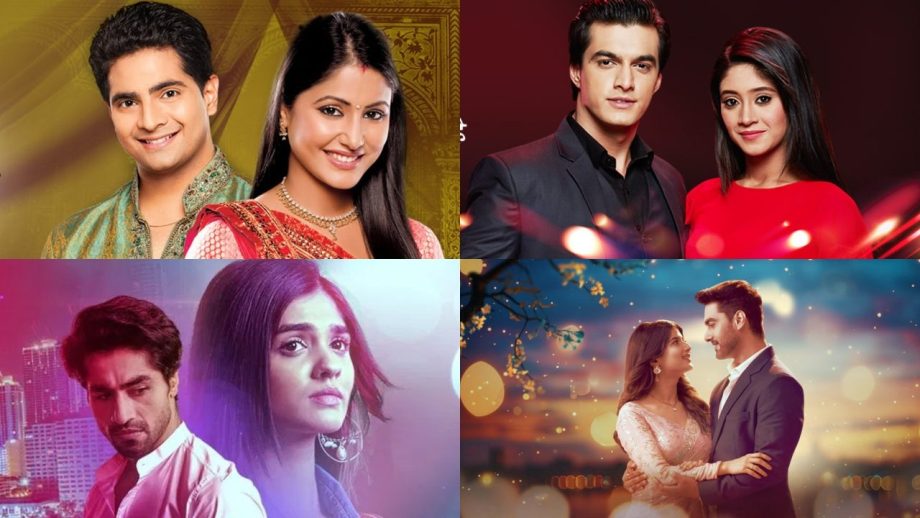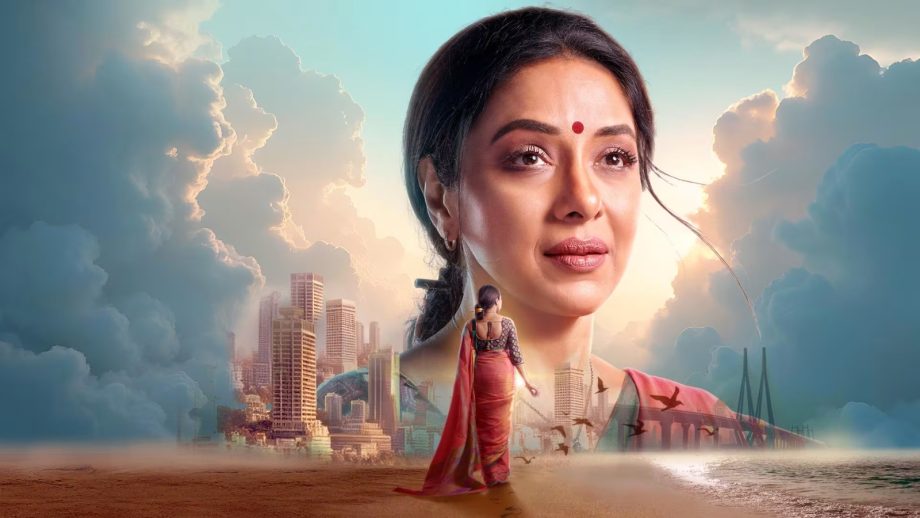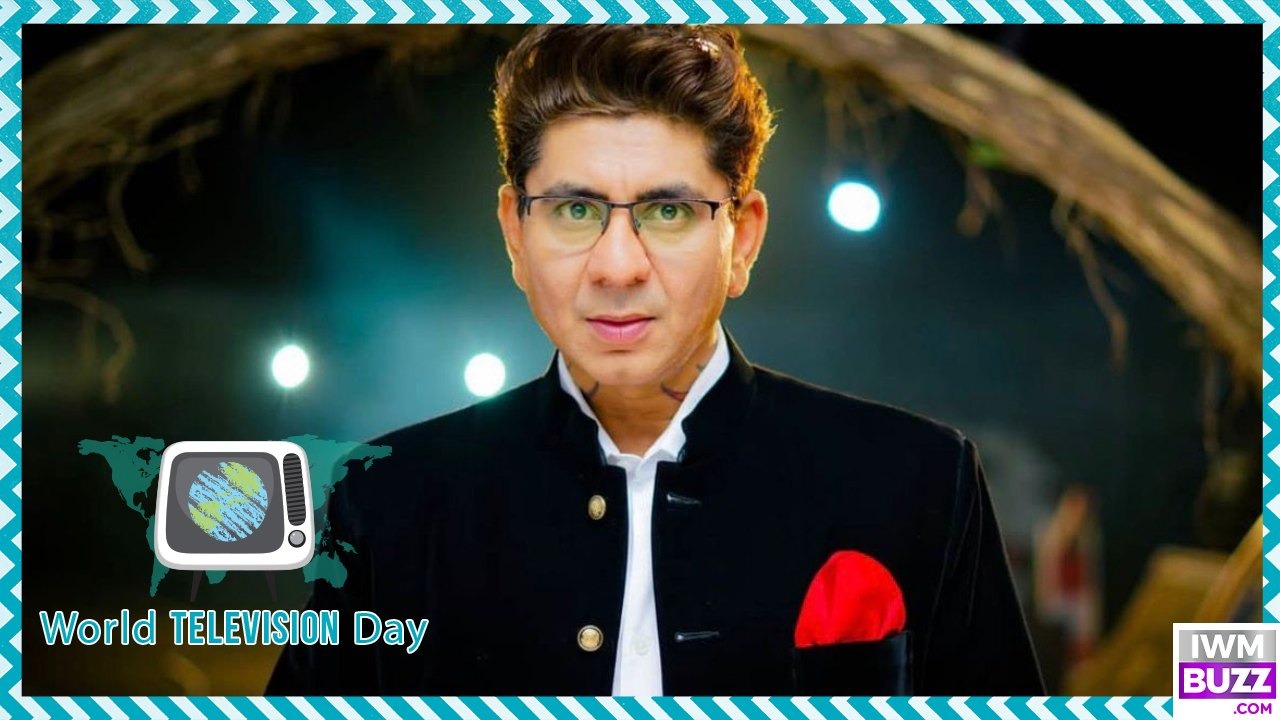Rajan Shahi is a prominent Indian television producer and director, best known for founding Director’s Kut Productions. His company has produced many popular and successful Indian shows, including Anupamaa, Yeh Rishta Kya Kehlata Hai, and Sapna Babul Ka… Bidaai. On the occasion of World Television Day today, Producer Rajan Shahi talks exclusively to IWMBuzz.com on his long journey in television, where his in-depth talk takes us through the evolution of TV as a medium, its popularity over the years, his iconic shows on TV and more.
People say television is dead—but Yeh Rishta Kya Kehlata Hai, completing 5,000 episodes soon, proves otherwise.
Read on.
How has television shaped your journey?
Television has given me a lot of recognition. It has been the medium that gave me, my company, and everyone associated with our shows national and international recognition. My journey with TV began in 1990. I remember that I was trying to look for work as an assistant director in films, and thankfully, I was blessed to have the guidance of my late grandfather, P. Jairajji, the veteran film actor who won the Dadasaheb Phalke Award in 1981. He had started his career in February 1929. My grandfather, Mr P. Jairaj ji told me, “Rajan, you are trying to get into films, but look at television. Television is the museum of tomorrow.”
The revival of motherhood as a central theme across TV happened because of Anupamaa.
I thank him for that advice, because in 1990, television was looked down upon. People thought doing television was a step down in life or something done only to make quick money. There was a very condescending attitude toward television professionals—even from broadcasters, ironically. But over the years, that perception changed as more people contributed to TV. I had a great journey assisting stalwarts like Bhushan sir, Bharat sir, Mahesh Bhatt, and Ravi Raidu. I learned a lot from them and then made my debut as a series director in 1999 with Dil Hai Ki Manta Nahi on Sony TV, which was also Rupali Ganguly’s first show as a lead. Later, I directed several successful shows like Jassi Jaissi Koi Nahin, Saat Phere and many more. I then turned producer with successful shows like Bidaai and Yeh Rishta Kya Kehlata Hai. Anupamaa further defined my journey and pushed me fully into television production. For the last 18 years, I have been producing shows under Shahi Productions.
TV faces competition but not a threat. As long as we reinvent ourselves, tell honest stories, and maintain creative integrity, TV will thrive.
How has the perception of TV changed over the years?
Earlier, people looked down on TV, and it was disheartening. Even broadcasters who thrived on television content treated TV professionals like second-class citizens at award functions or major events. If a film star—who had nothing to do with TV—walked in, all attention shifted to them. Meanwhile, television actors and crew, who worked tirelessly day and night, received less respect. That used to upset me. But things changed as television’s popularity grew. Today, I am speaking to you from Morocco, and people here know our shows. Wherever I travel, whether in India or globally, I witness the love and recognition television brings. Our shows are dubbed in different languages and watched worldwide. Television later became a powerful platform that even the biggest film stars embraced—Amitabh Bachchan, Salman Khan, Shah Rukh Khan—all began doing TV. Films and TV became interconnected, with TV becoming a major promotional platform for films.

Your shows YRKKH and Anupamaa continue to break records. What makes them special?
The journey of shows like Yeh Rishta Kya Kehlata Hai, which will complete 5,000 episodes next month, and Anupamaa, which has been the top-rated show for almost four years, speaks volumes about TV’s reach and sustainability. Our actors have received immense recognition, and the industry continues to provide tremendous opportunities, including for women and young creatives. Today, my daughter Ishika Shahi has also entered the television and digital space. People say television is dead—but Yeh Rishta Kya Kehlata Hai, completing 5,000 episodes soon, proves otherwise. When COVID happened, many believed it was the end of television. But Anupamaa launched right after the pandemic and immediately became a trendsetter and a national and international movement. Even today, it is India’s number one show. I feel proud to have produced a show that revived Indian television. So many shows today are inspired by Anupamaa—from storylines to costumes, dialogue styles, and screenplays. Even within the same network, many shows reflect their influence, especially the revival of narratives centred around mothers and housewives. Many said launching a show led by a 40-plus mother after Covid was suicidal, but it proved otherwise. Anupamaa even inspired films and web shows across Indian languages.

How has Anupamaa become an inspiration?
The revival of motherhood as a central theme across TV happened because of Anupamaa. I see fan clubs dedicated to the show even abroad, such as in the U.S. This proves television is a powerful medium for social change. Seven days a week, TV enters people’s homes and becomes part of their lives. It allows us to address social issues—juvenile diabetes, women’s empowerment, menstrual health, marital abuse, marriage dynamics—and present them in an engaging and educative manner.
What makes television such a powerful social medium?
Television is a strong social tool. With 5,000 episodes and 16.5 years of continuous viewership, shows like Yeh Rishta Kya Kehlata Hai have proven that TV remains relevant despite competition from films and digital platforms. One film may be forgotten in two hours, but a TV show remains in people’s hearts for years. In the next four years, my family will complete 100 years of contribution to the entertainment industry across four generations. Today, television merges beautifully with digital platforms. Years ago, we started releasing episodes of Anupamaa and Yeh Rishta Kya Kehlata Hai first on digital and then on TV. On JioHotstar, both shows are among the highest-rated digital shows. In fact, many people watch Anupamaa early in the morning before the TV audience sees it. We even created a 12-part digital series inspired by Anupamaa, titled Namaste America, produced by my daughter Ishika Shahi. Many digitally launched shows don’t match the viewership of Anupamaa on JioHotstar. As a maker, I ensure that our content works both on digital and TV. Good content works anywhere, and that is the success of Yeh Rishta and Anupamaa.
What is your take on rating systems?
I have never interfered with how ratings are monitored. I focus on content. Broadcasters have all the data, including digital viewership, but officially, they never reveal digital numbers. I don’t know why, but unofficially, I am told Anupamaa has massive digital engagement. On the quality of TV programming, my production company has always focused on quality over quantity. We work on very few shows but invest heavily in writing, visuals, direction, and creative control. I’m glad broadcasters give me full creative freedom. The sustained success of our shows speaks for itself.
Do you think TV faces a threat from other mediums?
TV faces competition but not a threat. As long as we reinvent ourselves, tell honest stories, and maintain creative integrity, TV will thrive. Competition only pushes us to evolve. Television keeps you on your toes—seven days a week. Even during COVID, TV workers were frontline warriors delivering daily content. Viewers have kept shows like Anupamaa and Yeh Rishta alive, and for that, I’m deeply grateful. As a maker, I have always tried to create shows that become trendsetters. My debut show, Bidaai, happened thanks to Mr Uday Shankar, as it was his first show as the Star Network head, and he had full faith in me to go against the trend at that time. We created Bidaai, which became hugely popular. Similarly, we created YRKKH, which is about simplicity, family values, and relationships, and it went on to become a trendsetter. Anupamaa came at a time when stories centred around mothers were considered irrelevant, yet it worked beautifully for us. I have always aimed to make shows that set new trends. My debut with DKP, my mom’s debut with Anupamaa, and my daughter Ishika Shahi’s debut with Namaste America, which was inspired by Anupamaa on television, all reflect that journey.


